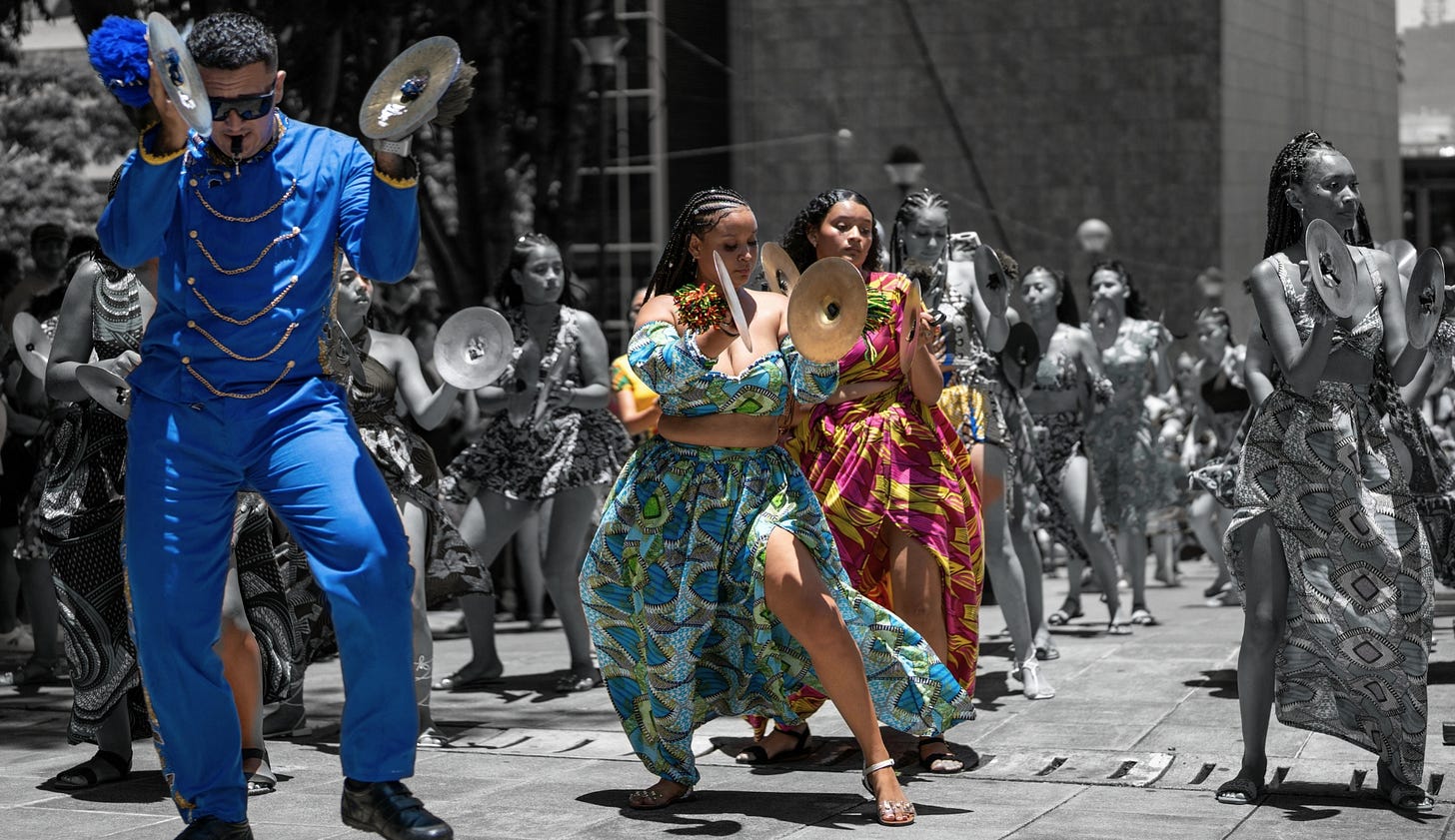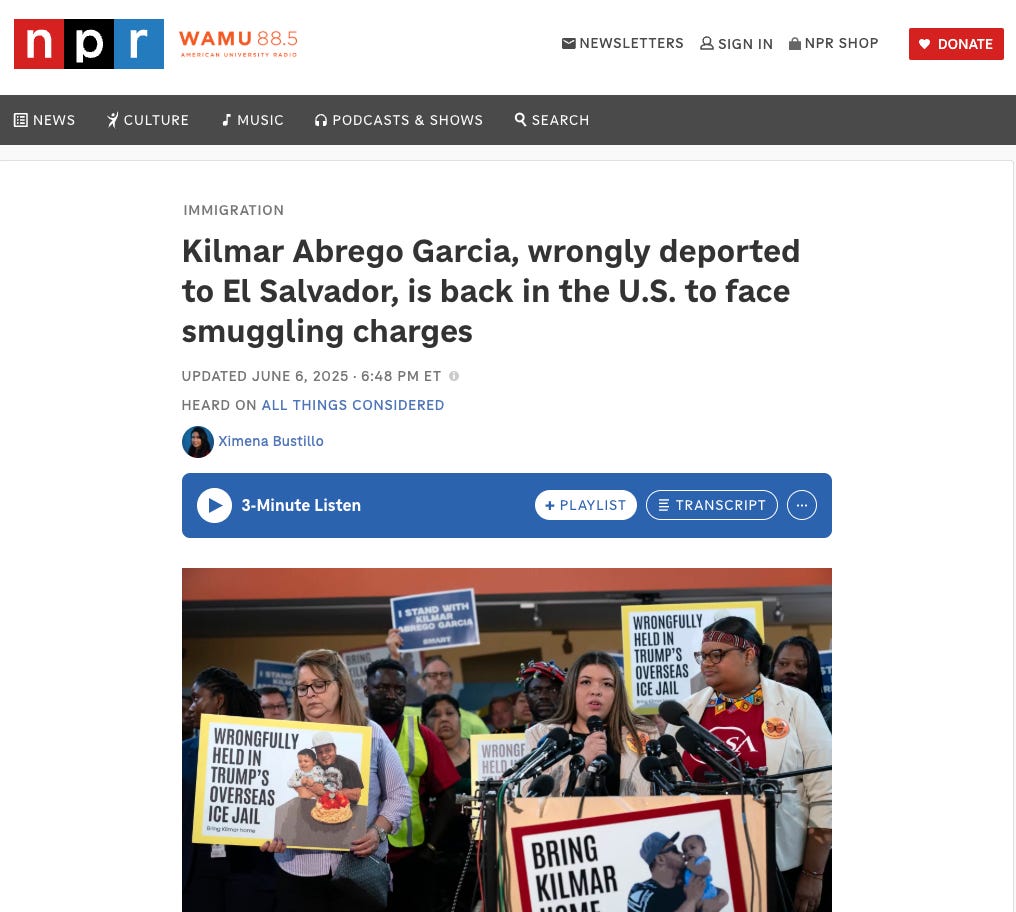Culture Goes Into Hiding
Security concerns are forcing immigrant communities to choose between celebration and safety. Bonus: Nigerian Meat Pie recipe for busy moms.
As a local journalist, I've covered more parades than I can count. Pride parades, Puerto Rican parades, all kinds of cultural celebrations. My first news job was in New York City, and parade coverage was a biweekly affair in the summers.
But I learned from all those early morning setup shots and crowd interviews. Every parade taught me something new about the culture I was covering: the different dances, the music, how people celebrated their heritage in their own unique ways, right here in America.
And I think this is pretty unique to the United States. I've traveled and lived in several other countries, and I don't remember seeing the same kind of cultural parades for minority populations that we have here (happy to be corrected on this). There's something distinctly American about the way we let—or better yet, encourage—communities to celebrate who they are in public spaces.
Which is why the cancellation of the Salvadoran parade in Maryland because of ICE fears really matters. Are communities now afraid to publicly display their culture in this country? The headlines say some are.
From Pride to Suppression
For many first and second generation Americans I’ve met, parades have been a way for them to connect with the other half of themselves, the part that is often reserved for home. Hidden.
It is as if the moment they change from their jeans and t-shirts to whatever cultural attire they normally wear, they are letting you in on a secret, showing you a glimpse of another part of themselves. At least that's how I felt watching people I knew dress up and show out at cultural celebrations.
In places like Montgomery County, Maryland where I live, or Houston, Texas where my mom is, cultural diversity is huge. The parades and celebrations are how local families display their pride in their heritage and maintain a sense of belonging to their communities.
But what happens when fear starts dictating which cultures get to be visible?
Even in Montgomery County, where the local government voices strong support for immigrant communities, people's lived experience appears to be changing. They're now scared of being the next Kimar Abrego Garcia, caught in a web of politics that may or may not have anything to do with them.
So What?
So what does it mean for these families when they don’t feel as if they can celebrate their culture publicly anymore? When your restaurants are “trouble spots,” when your cultural centers are seen as dangerous and threatening? How do you explain to your kids that celebrating who they are has become unsafe? I don’t have these answers, but these are questions worth pondering.
The U.S. has gone through ebbs and flows with immigrant hostility and discrimination in its history—think Japanese internment camps, deportations of the Irish, the list goes on. But my formative years in this country were marked by a system where multiple cultures seemed to coexist and celebrate openly.
I think about all those parades I covered as a young reporter. Each one was a story about people finding ways to be themselves in America. They were stories about belonging, about community, about the complexity of the American identity.
Now, I'm watching communities make what they describe as the tough decision to hide. This Salvadoran parade cancellation isn't just a Maryland story. It is the new American story. And right now, I'm not sure how it ends.
Bonus: Nigerian Meat Pie Recipe (Cheat Version)
Now, a bit from my culture. Here’s how I make my quick and flavorful Nigerian meat pies, with a few time-saving hacks and some personal touches.
No measurements, just vibes. If you think too hard, you’ll mess it up.
Filling:
About 1 lb ground beef
1 whole onion, diced
4–5 garlic cloves, chopped
1–2 carrots, chopped
1 zucchini, chopped (you can substitute yellow squash)
Olive oil
Salt to taste
Seasonings (to your heart’s content):
Curry powder
Turmeric
Cumin
Parsley
Paprika
Black pepper
Oregano
Red pepper flakes (optional – I skip this for my kids)
I don’t add potatoes to this filling because I’m not about that carb-on-carb life, but lots of Nigerian people do.
Sauté everything in olive oil—start with the onions and garlic, then brown the beef, then add the veggies and spices. Cook it down until everything is well-seasoned and soft. I usually make the filling the night before because I don’t like doing too much in one day.
Dough (cheat code):
Trader Joe’s pizza dough
A bit of flour (to firm it up—it’s too sticky straight from the bag)
1 Egg for coating
Roll it out, cut it into circles or squares, add the filling, and fold it over. Press the edges with a fork to seal. You can brush the tops with an egg wash if you want them glossy, but it’s optional.
Bake at 375–400°F until golden brown (about 25–30 minutes).
That’s it.
Delicious, savory, flaky, and kid-approved. It’s the Nigerian meat pie but faster, easier, and still packed with love.
Subscribe and Share
I hope you found this newsletter helpful and engaging. Please share with any friends or family you think would be interested and feel free to buy me a coffee by subscribing if you got some use out of it or make a one-time donation.
Follow me on Instagram too!
And here is my LinkedIn.
Order a signed copy of my sci-fi novel The Herd- When Democracy Falls.




